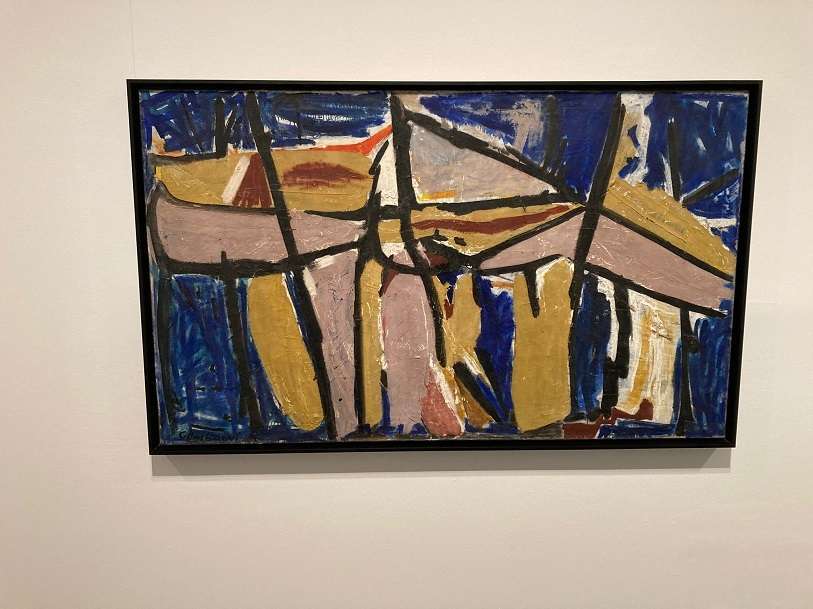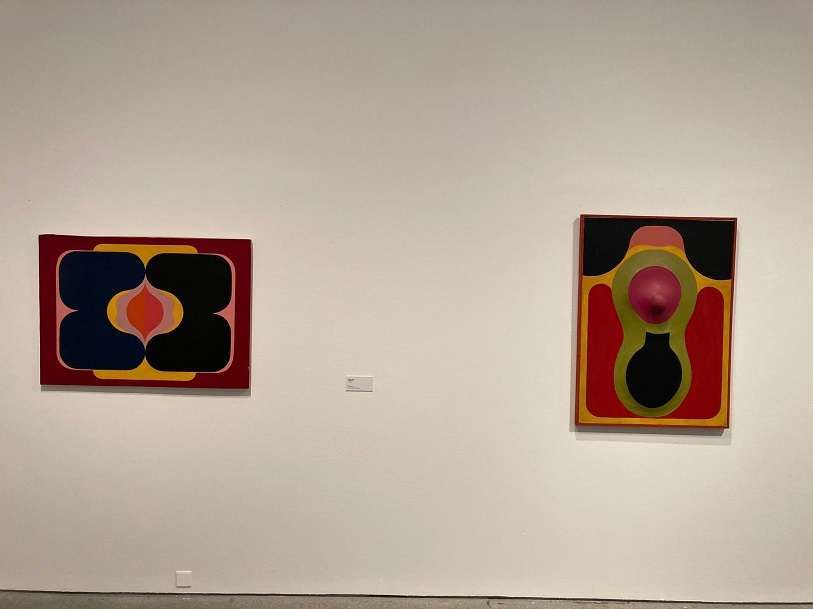Driss Ksikes, Abdellah Karroum and the Moroccan Trilogy

The Casa Árabe in Madrid offered an early epilogue to the great exhibition on show at the Reina Sofía Museum until 27 September. It is perhaps one of the highest intellectual approaches to our southern neighbour, and one of the best possible exhibitions to break down the clichés that still prevail on the northern shore of the Mediterranean with respect to the opposite shore.
Abdellah Karroum, curator of this major exhibition, is currently the director of Mathaf, Doha's Museum of Modern Art. He is particularly interested in checking the impact of the exhibition he has so carefully prepared for Madrid, which he describes as the greatest effort to bring Morocco closer to Europe as an artist.

For the European visitor or observer, it is indeed a real surprise to discover artists of the stature of Mohamed Larbi Rahhali, Farid Belkahia, Miloud Labied or Fouad Bellamine. To be surprised by the proximity of the modernism of Chaibia Talal, Mohamed Drisi or Fatima Hassan, who nevertheless do not forget their roots in the fusion of their unusual creations. Or to approach authors such as Mounir Fatmi, who fuses in his painting 'Al-Jazeera' or his sculpture '500 metres of silence' the emergence of an art attached to the cry of the street. An entire room dedicated to the diptych 'Adam and Eve' by Soukaina Joval or the gigantic mural 'Fantasy' by Yassine Balbzioui are astonishingly avant-garde, as are installations such as 'The urns' by André Elbaz.
Karroum divides the exhibition into three periods: from the transition to independence (1950-1969), the years of lead (1970-1999) and the present day of the 21st century (2000-2020), a period that coincides with the reign of Mohammed VI.

"These are three very well-defined stages," says Driss Ksikes, researcher, writer, literary critic and undoubtedly one of the great contemporary Moroccan intellectuals. He explains the tension of post-colonialism, also marked in art by an attempt to withdraw, almost to abominate cultural manifestations tending towards Eurocentrism, with the consequent disdain for the local. A period of national reaffirmation, in which some voices demanded the assumption of the past - also in art - as an assimilated part of one's own history. And finally, the new, third period of this trilogy, in which Moroccan creators, freed from the shackles of the past, burst onto the universal cultural scene with their own idiosyncrasies.
The debate between the two intellectuals, Ksikes and Karroum, at Casa Árabe was a veritable lesson in the philosophy of art, a balance sheet on the capacity of artistic creation to affect and make possible new senses of the collective, and specifically on how this has taken place in the context of contemporary Moroccan society. The debate was moderated by Susana Moliner, curator of the programme of events Entretanto in which the Trilogía Marroquí exhibition is framed.

It will be worthwhile, when the exhibition is taken down and the events are reviewed, to leave a documentary and anthology compiling an event as important as it is unusual in Spanish Moroccan artistic relations. In a context of global fragility and uncertainty, they should reflect the many emancipatory and transformative aspects that have been unleashed by artistic practice from Morocco.
It would also be desirable that, in this Spanish Moroccan artistic and intellectual rapprochement, the creators present at the Reina Sofía and thinkers such as Ksikes and Karroum begin to be regular visitors to Spanish universities and cultural spaces. We will take a giant step forward in mutual understanding on both shores of our Mediterranean.











